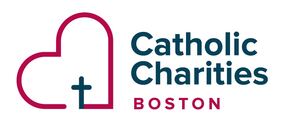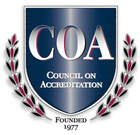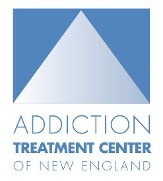Frequently Asked Questions
WHAT IS M.A.T.?
Medication-assisted treatment (MAT) is treatment for substance use disorders that includes the use of medication along with counseling and other support. Treatment that includes medication is often the best choice for opioid-use disorder (OUD). The choice to include medication as a part of recovery is a personal, medical decision.
There are three main choices for medication for OUD: methadone, buprenorphine, and naltrexone.
There are three main choices for medication for OUD: methadone, buprenorphine, and naltrexone.
WHAT IS METHADONE?
Methadone is a long-acting opioid that has been used for decades to treat people who are dependent on opioids like heroin, fentanyl, and certain narcotic pain medicines. When taken as prescribed, it is safe and effective. Methadone can be started at any time. There is no need to wait after the last use for withdrawal symptoms to begin. However, providers will not begin methadone treatment with anyone who seems to have just used and/or appears intoxicated.
Methadone works by changing how the brain and nervous system respond to pain. It lessens the painful symptoms of opioid withdrawal and blocks the euphoric effects of other opioids such as heroin, fentanyl, morphine, codeine, as well as semi-synthetics like oxycodone and hyrdocodone.
Methadone can be offered in pill, liquid, and wafer forms and is generally taken once a day.
Side effects of methadone include constipation, sexual problems, swelling, and sweating. It can also cause heart problems or make existing heart problems worse.
Warnings:
Methadone works by changing how the brain and nervous system respond to pain. It lessens the painful symptoms of opioid withdrawal and blocks the euphoric effects of other opioids such as heroin, fentanyl, morphine, codeine, as well as semi-synthetics like oxycodone and hyrdocodone.
Methadone can be offered in pill, liquid, and wafer forms and is generally taken once a day.
Side effects of methadone include constipation, sexual problems, swelling, and sweating. It can also cause heart problems or make existing heart problems worse.
Warnings:
- High dosages may stop a person's breathing.
- The highest risk of methadone overdose occurs at the start of treatment.
- There is a substantial risk of methadone overdose when combined with benzodiazepines (Valium, Klonopin, Xanax, Ativan, etc.) or with other substances including alcohol, due to a toxic buildup that occurs because methadone stays in the system so long.
- There is an increased risk of driving impairment at the start of treatment and during dosage adjustments.
- There is an increased risk of serious heart problems and sudden cardiac arrest.
WHAT IS BUPRENORPHINE?
Buprenorphine is an opioid partial agonist. This means that, like opioids, it produces effects such as euphoria or respiratory depression. With buprenorphine, however, these effects are weaker than those of other substances such as heroin.
Buprenorphine's opioid effects increase with each dose until, at moderate doses, they level off, even with further dose increases. This ceiling effect lowers the risk of misuse, dependency, and side effects.
Buprenorphine is usually taken daily and must be dissolved under the tongue or inside the mouth.
Some common side effects are headache, nausea, and constipation.
Warnings: The same warnings for methadone apply to buprenorphine.
Buprenorphine's opioid effects increase with each dose until, at moderate doses, they level off, even with further dose increases. This ceiling effect lowers the risk of misuse, dependency, and side effects.
Buprenorphine is usually taken daily and must be dissolved under the tongue or inside the mouth.
Some common side effects are headache, nausea, and constipation.
Warnings: The same warnings for methadone apply to buprenorphine.
WHAT IS NALTREXONE?
Naltrexone is a medication approved by the FDA to treat opioid and alcohol use disorders. It comes in a pull form or as an injection. The pill form can be taken at 50mg once per day. The injectable extended-release form of the drug (Vivitrol) is administered at 380mg intramuscular once a month. The injectable form has been much more effective for opioid use disorder. Once administered, the blocking effects are active for one month.
Naltrexone can be prescribed by any health care professional who is licensed to prescribe medications. To reduce the risk of precipitated withdrawal, patients are warned to abstain from opioids for a minimum of 7-10 days before starting naltrexone.
Naltrexone blocks the euphoric and sedative effects of drugs such as heroin, fentanyl, and morphine. It binds and blocks the opioid receptors and is reported to reduce opioid cravings. There is no abuse and diversion potential with naltrexone.
Naltrexone works for highly motivated people who can get through opioid withdrawal and remain opioid-free for at least 7-10 days prior to beginning treatment. It is a good option for those who want to eliminate all opioids right away. If a person relapses and uses the problem drug, naltrexone prevents the feeling of getting high. People using naltrexone should not use any other opioids, alcohol, sedatives, or tranquilizers.
Naltrexone does not help with withdrawal symptoms. Most people do not have many side effects from naltrexone, but soreness in the area of injection is very common. Other side effects can include stomach pain or nausea, diarrhea, and difficulty sleeping.
Warnings:
Naltrexone can be prescribed by any health care professional who is licensed to prescribe medications. To reduce the risk of precipitated withdrawal, patients are warned to abstain from opioids for a minimum of 7-10 days before starting naltrexone.
Naltrexone blocks the euphoric and sedative effects of drugs such as heroin, fentanyl, and morphine. It binds and blocks the opioid receptors and is reported to reduce opioid cravings. There is no abuse and diversion potential with naltrexone.
Naltrexone works for highly motivated people who can get through opioid withdrawal and remain opioid-free for at least 7-10 days prior to beginning treatment. It is a good option for those who want to eliminate all opioids right away. If a person relapses and uses the problem drug, naltrexone prevents the feeling of getting high. People using naltrexone should not use any other opioids, alcohol, sedatives, or tranquilizers.
Naltrexone does not help with withdrawal symptoms. Most people do not have many side effects from naltrexone, but soreness in the area of injection is very common. Other side effects can include stomach pain or nausea, diarrhea, and difficulty sleeping.
Warnings:
- There is a risk of causing severe withdrawal symptoms if administered to an opioid-dependent person without waiting the 7-10 days from last use
- Patients on naltrexone may have reduced tolerance to opioids and may be unaware of their potential sensitivity to the same or lower doses of opioids that they used to take. If patients who are treated with naltrexone relapse after a period of abstinence, it is possible that the dosage of opioids that was previously used may have life-threatening consequences. Overdose risk is high for people who use large amounts of opioids while taking naltrexone and for those who return to opioid use after a period of taking naltrexone due to this decrease in tolerance.
- People with liver disease should check with their doctors before deciding to use naltrexone. Very large doses can cause liver damage, but studies show the recommended dose has been used safely, even with people being treated for Hepatitis C (HCV).
- There is a risk of cancelling effects of opioid pain medications given in a medical emergency.
- There is a risk of depression and suicidal thoughts.
- There is a risk of injection-site reactions.
HOW DO I BECOME A CLIENT?
To become a client, please call and speak with our intake staff at (617) 254-1271 x119.
We can complete a brief assessment, collecting basic demographics and substance use history and verifying health insurance eligibility and benefits. Afterwards, we can see about scheduling our earliest available appointment for an in-person intake, where you will provide photo ID and meet with our clinical, medical, and admin departments. After satisfactory completion of all necessary parts of the intake, our staff can set you up for admission that same day.
In-person intakes are scheduled by appointment, generally between the hours of 6:30 AM until 8:30 AM on Mondays, Tuesdays, Wednesdays, and Fridays. The appointments generally last approximately two hours.
Please note: admission criteria between our programs can vary slightly. Please call with any questions.
We can complete a brief assessment, collecting basic demographics and substance use history and verifying health insurance eligibility and benefits. Afterwards, we can see about scheduling our earliest available appointment for an in-person intake, where you will provide photo ID and meet with our clinical, medical, and admin departments. After satisfactory completion of all necessary parts of the intake, our staff can set you up for admission that same day.
In-person intakes are scheduled by appointment, generally between the hours of 6:30 AM until 8:30 AM on Mondays, Tuesdays, Wednesdays, and Fridays. The appointments generally last approximately two hours.
Please note: admission criteria between our programs can vary slightly. Please call with any questions.
WHAT ARE YOUR M.A.T. REQUIREMENTS?
Once admitted to ATCNE, the long-term requirements for our methadone (MMT, 180 day) and buprenorphine programs are as follows:
- Daily dosing at our clinic between the hours of 6:15 AM until 1:00 PM weekdays and 7:15 AM until 12:00 PM weekends (holiday hours may vary)
- Submitting random urine tests when requested
- Weekly participation in behavioral health counseling (individual and, if applicable, group counseling)
WHAT IF I DON'T HAVE HEALTH INSURANCE?
ATCNE can accept a number of clients for our opioid treatment programs (OTPs) without insurance on a self-pay, sliding-scale basis, based on income.
Funding from the Mass. Dept of Public Health’s Bureau of Substance Addiction Services (BSAS) allows us to provide services on a sliding-scale basis. Proof of income is required and can include: a recent Form 1040, W-2 Statement of Wages, and/or a recent pay-stub. Other forms of proof of income may be acceptable, but must first be cleared by ATCNE staff.
Please note: Sliding-scale is exclusive to ATCNE's OTP license and does not apply for our behavioral health or naltrexone programs. For non-OTP applicants without insurance, ATCNE can charge Medicaid rates for our services.
Our first priority is connecting our clients to the services they need. As a non-profit, we will not turn away a client based on their financial standing.
Funding from the Mass. Dept of Public Health’s Bureau of Substance Addiction Services (BSAS) allows us to provide services on a sliding-scale basis. Proof of income is required and can include: a recent Form 1040, W-2 Statement of Wages, and/or a recent pay-stub. Other forms of proof of income may be acceptable, but must first be cleared by ATCNE staff.
Please note: Sliding-scale is exclusive to ATCNE's OTP license and does not apply for our behavioral health or naltrexone programs. For non-OTP applicants without insurance, ATCNE can charge Medicaid rates for our services.
Our first priority is connecting our clients to the services they need. As a non-profit, we will not turn away a client based on their financial standing.
WHAT ARE YOUR PAYMENT POLICIES?
1. Weekly treatment fees are due each week by 2:00 PM Monday and represent the client’s weekly financial obligation for treatment services provided by ATCNE.
If a client wishes to pay on a day other than Monday, they may submit a written letter to ATCNE staff. The letter will be reviewed by the financial staff. If approved, the client will be notified, and the letter will become part of the client’s chart. The same rules will apply to payments due, including fees.
2. Payments will be accepted from 6:00 AM to 2:00 PM Monday through Friday by office staff only. No payments will be accepted on weekends or holidays, unless specifically indicated by ATCNE staff on a case-by-case basis.
3. In a week with a Monday holiday, payments are due by 2:00 PM on Tuesday. If a holiday falls on a day other than Monday, payments are still due by 2:00 PM Monday.
4. Clients may be required to pay an initial fee on the day of admission prior to dosing. This fee is kept to cover the last month of treatment. If on the client’s discharge date, there is a credit balance in their account, under ordinary circumstances, this balance will be mailed to them. It is the client’s responsibility to make sure that ATCNE has their accurate address on file.
5. An administrative fee of $15.00 will be charged if ATCNE arranges a trip for a client to another program.
6. A fee may be charged for photocopying information from a client’s chart and for replacing this manual. Fees for these and like services will vary depending upon costs for materials and labor incurred by the agency.
7. Payment will be accepted in the form of a credit card (MasterCard or Visa only), bank check, money order, or cash. Payments are also accepted by mail (money order only). Personal checks will not be accepted. ATCNE is not required to make change. If a payment exceeds the required fee, the excess can be credited toward future fees. Upon payment, the client will be given a receipt for the amount paid. It is the client’s responsibility to keep receipts. If a question arises with regard to payments, the receipt for the payment in question will serve as proof of payment. NOTE: ATCNE can now take credit card payments (MasterCard or Visa, non-debit) over the phone at 617-254-1271. Client must be able to confirm full name, clinic ID number, and date of birth.
8. The week begins on Sunday and ends on Saturday. Clients who receive two (2) or less days of service in a week with reasonable cause and documentation of absence, or who have made appropriate arrangements in advance, will not be charged out of pocket fees for that week. Clients receiving more than two (2) days of service in a week will be charged for a full week. Guests/visitors who receive dosing must pay out of pocket for every day of service they receive.
9. Any client may pay treatment fees on a monthly, rather than weekly, basis. Monthly payments are calculated by multiplying the client’s weekly treatment fee by four (4), regardless of the number of weeks in the month. However, clients may not start their monthly payment privileges with a five (5) week month. In order to qualify for monthly payment privileges, a client must make a monthly payment for a four (4) week month proceeding the five (5) week month for which they will receive the fee savings. Monthly payments are due on the first Monday of the month (except in months where the first Monday is a holiday, in which case the payment is due the next business day). If payment is not made by the due date, a $10.00 late fee will be assessed for the first week of the month. If the entire monthly fee is not paid by the Wednesday following the first Monday, an Administrative detoxification notice will be issued the following day (Thursday). Once payment is made, and the client’s detoxification (decrease dosage) is reversed, the client will not be able to resume monthly payments until they have again met the above conditions.
DELINQUENT PAYMENTS
1. If a client’s weekly treatment fee has not been paid by Monday at 2:00 PM (Tuesdays in weeks with Monday holidays), a $10.00 late fee may be assessed. If all fees owed have not been paid by 2:00 PM Wednesday (Thursday in weeks with Wednesday holidays), an administrative detoxification notice may be issued. It is each client’s responsibility to monitor their own payments and balances.
2. Once an administrative detoxification for non-compliance with ATCNE payment policies has begun, it can be reversed only upon payment of all outstanding fees. As with proposed detoxification for any reason, it is the client’s right to appeal this action, following the procedure detailed in the section of this manual headed, “ATCNE Termination Appeal Procedure.” Payments must be made by 9 AM Tuesday to be reversed on Wednesday, or by 9 AM Friday to be reversed on Saturday.
3. At the discretion of ATCNE, non-compliance with payment policies resulting in the initiation of three (3) administrative detoxification proceedings for a client during any six (6) month period can lead to irreversible detoxification.
4. If a client is terminated for non-payment of fees, medically supervised withdrawal may begin immediately upon providing written notice of termination and continue concurrent with the client’s appeal, if any. All outstanding fees must be paid prior to a client's request to reapply for treatment at ATCNE.
If a client wishes to pay on a day other than Monday, they may submit a written letter to ATCNE staff. The letter will be reviewed by the financial staff. If approved, the client will be notified, and the letter will become part of the client’s chart. The same rules will apply to payments due, including fees.
2. Payments will be accepted from 6:00 AM to 2:00 PM Monday through Friday by office staff only. No payments will be accepted on weekends or holidays, unless specifically indicated by ATCNE staff on a case-by-case basis.
3. In a week with a Monday holiday, payments are due by 2:00 PM on Tuesday. If a holiday falls on a day other than Monday, payments are still due by 2:00 PM Monday.
4. Clients may be required to pay an initial fee on the day of admission prior to dosing. This fee is kept to cover the last month of treatment. If on the client’s discharge date, there is a credit balance in their account, under ordinary circumstances, this balance will be mailed to them. It is the client’s responsibility to make sure that ATCNE has their accurate address on file.
5. An administrative fee of $15.00 will be charged if ATCNE arranges a trip for a client to another program.
6. A fee may be charged for photocopying information from a client’s chart and for replacing this manual. Fees for these and like services will vary depending upon costs for materials and labor incurred by the agency.
7. Payment will be accepted in the form of a credit card (MasterCard or Visa only), bank check, money order, or cash. Payments are also accepted by mail (money order only). Personal checks will not be accepted. ATCNE is not required to make change. If a payment exceeds the required fee, the excess can be credited toward future fees. Upon payment, the client will be given a receipt for the amount paid. It is the client’s responsibility to keep receipts. If a question arises with regard to payments, the receipt for the payment in question will serve as proof of payment. NOTE: ATCNE can now take credit card payments (MasterCard or Visa, non-debit) over the phone at 617-254-1271. Client must be able to confirm full name, clinic ID number, and date of birth.
8. The week begins on Sunday and ends on Saturday. Clients who receive two (2) or less days of service in a week with reasonable cause and documentation of absence, or who have made appropriate arrangements in advance, will not be charged out of pocket fees for that week. Clients receiving more than two (2) days of service in a week will be charged for a full week. Guests/visitors who receive dosing must pay out of pocket for every day of service they receive.
9. Any client may pay treatment fees on a monthly, rather than weekly, basis. Monthly payments are calculated by multiplying the client’s weekly treatment fee by four (4), regardless of the number of weeks in the month. However, clients may not start their monthly payment privileges with a five (5) week month. In order to qualify for monthly payment privileges, a client must make a monthly payment for a four (4) week month proceeding the five (5) week month for which they will receive the fee savings. Monthly payments are due on the first Monday of the month (except in months where the first Monday is a holiday, in which case the payment is due the next business day). If payment is not made by the due date, a $10.00 late fee will be assessed for the first week of the month. If the entire monthly fee is not paid by the Wednesday following the first Monday, an Administrative detoxification notice will be issued the following day (Thursday). Once payment is made, and the client’s detoxification (decrease dosage) is reversed, the client will not be able to resume monthly payments until they have again met the above conditions.
DELINQUENT PAYMENTS
1. If a client’s weekly treatment fee has not been paid by Monday at 2:00 PM (Tuesdays in weeks with Monday holidays), a $10.00 late fee may be assessed. If all fees owed have not been paid by 2:00 PM Wednesday (Thursday in weeks with Wednesday holidays), an administrative detoxification notice may be issued. It is each client’s responsibility to monitor their own payments and balances.
2. Once an administrative detoxification for non-compliance with ATCNE payment policies has begun, it can be reversed only upon payment of all outstanding fees. As with proposed detoxification for any reason, it is the client’s right to appeal this action, following the procedure detailed in the section of this manual headed, “ATCNE Termination Appeal Procedure.” Payments must be made by 9 AM Tuesday to be reversed on Wednesday, or by 9 AM Friday to be reversed on Saturday.
3. At the discretion of ATCNE, non-compliance with payment policies resulting in the initiation of three (3) administrative detoxification proceedings for a client during any six (6) month period can lead to irreversible detoxification.
4. If a client is terminated for non-payment of fees, medically supervised withdrawal may begin immediately upon providing written notice of termination and continue concurrent with the client’s appeal, if any. All outstanding fees must be paid prior to a client's request to reapply for treatment at ATCNE.
Documents
- ATCNE Client Policy Manual: OTP (English & Spanish) and Behavioral Health Program (English & Spanish) and Personnel Policy Manual
- Abbreviated Orientation Sheet: English, Spanish, Russian
- ATCNE Release of Information Form (Blank)
- ATCNE Confidentiality Notification
- ATCNE Courtesy Dosing Form (Blank)
- Aftercare Referral Packet (OTPs, detoxes, local hospitals, family support resources)
- Grievance Form
- Group Schedule (updated 1-2024)
Helpful Links
- Bureau of Substance Addiction Services (BSAS) - DPH of MA
- Substance Abuse & Mental Health Services Administration (SAMHSA)
- Find Treatment (MA)
- Massachusetts Organization for Addiction Recovery (MOAR)
- Learn to Cope
- Alcoholics Anonymous, Narcotics Anonymous, Al-Anon & Alateen
Some great organizations we're partnered with:
ATCNE is fortunate to be partnered with many other like-minded, recovery-focused programs.
|
Council on Accreditation This means we have met rigorous, internationally recognized standards of excellence-in the quality of our services, as well as the quality of our management. Accredited through September 30, 2023. |
Connect with Us:






